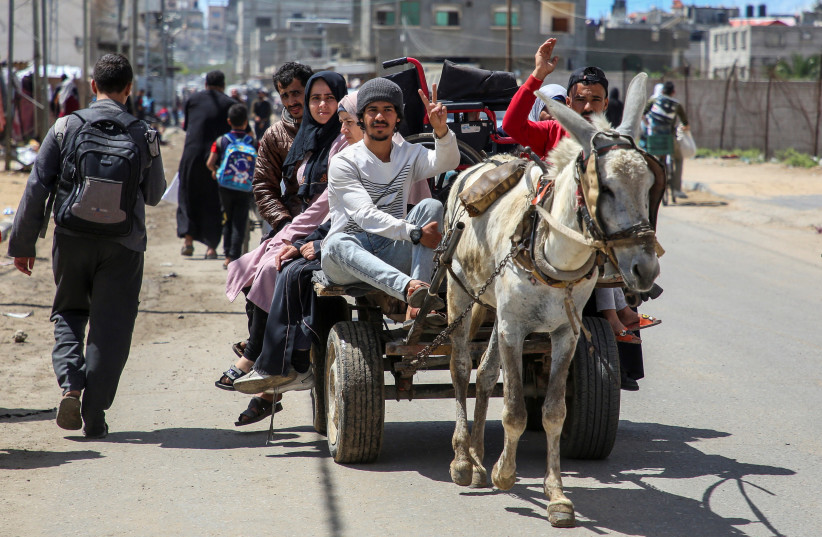Israeli authorities "as the occupying power" will have to take responsibility for a lot of UNRWA's operations if the organization is no longer able to operate, UN spokesperson Stéphane Dujarric said during Tuesday's news briefing, a day ahead of the Knesset's preliminary vote on a bill designating UNRWA as a terrorist organization.
Secretary General Antonio Guterres' "unconditional, unwavering" support for UNRWA should be clear to all, Dujarric told reporters.
"He's underscored over and over again the critical role that UNRWA plays. You have some sort of contingency planning going on for this, because there is no alternative to UNRWA," he said.
UNRWA Communications Director Juliette Touma also addressed reporters during the briefing virtually from Jordan.
According to UNRWA data, Touma said more than one million people have fled Rafah since May 6.

Touma said heavy bombardment continued in Rafah overnight, including north of Rafah where UN and UNRWA offices are located.
"Most of our staff could not make it to work today, they were packing and moving," Touma said. "People are absolutely terrified."
In the last three weeks, Touma said the UN picked up just over 200 humanitarian aid trucks.
"This is, of course, just a drop in the ocean amid people's humanitarian needs, as they continue to immensely grow," she said.
Movement restrictions
Touma attributed the slim number of trucks picked up due to several factors, including heavy movement restrictions imposed on the humanitarian community by Israeli authorities, the ongoing Israeli forces airstrikes and recent expansion of military operations in the area, the recent launch of rockets by Hamas, and limitations in general on the routes that can be used by the humanitarian teams.
Touma added the amount of fuel coming in is "by far not enough" to support the humanitarian operation in Gaza.
UNRWA is also running out of medical supplies and basic medicines due to the shortages of humanitarian deliveries, Touma said.
According to Touma, teams on the ground are reporting the aftermath of Sunday's attack "is huge."
Touma cited data from MAP, a medical aid organization, that reported 200 people were killed in Sunday's attack.
"There's a lot we haven't been able to confirm," Touma said. "But these reports are a testament to the fact that no place is safe in Gaza, no one is safe in Gaza. There's certainly no so-called humanitarian safe zone in Gaza."
Dujarric said while the Kerem Shalom crossing remains open in principle, it's extremely difficult for aid organizations to access the deliveries from the Gaza side due to the hostilities, challenging logistical conditions, and complex coordination procedures.
Dujarric said the UN was able to access 43 trucks as of Monday at the crossing site, though 86 humanitarian aid missions were impeded after getting the green light or denied to begin with, and 43 operations were canceled by mission organizers.
The State Department on Tuesday acknowledged the IDF's unit-level communication difficulties at Kerem Shalom, though spokesperson Matthew Miller said they've seen improvements with deconfliction and coordination.
